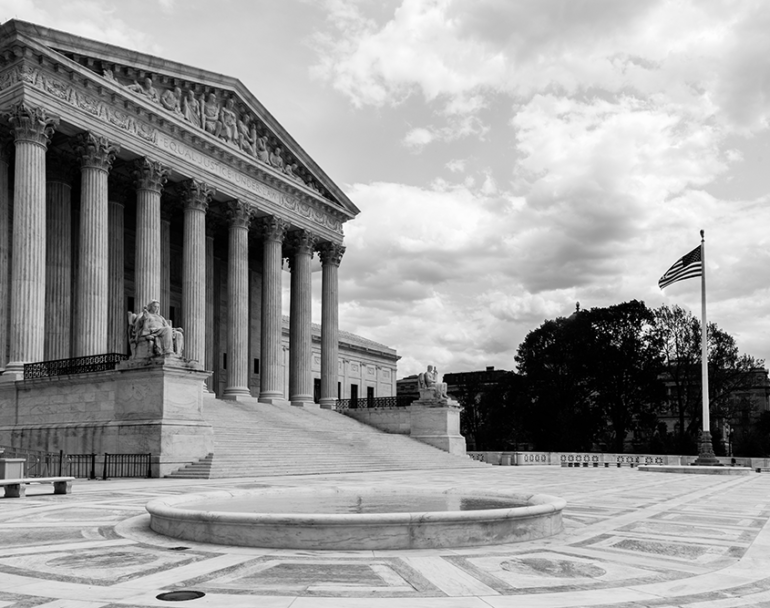
Clearing up the confusion about Marbury v. Madison
By Publius Huldah
It is true that the Constitution does not expressly say that the federal courts have the power to strike down acts of Congress which are unconstitutional.
What Article VI of the Constitution does say, however, is that (a) the Constitution is the supreme law of the land and (b) judicial officers (among others) are under Oath to support the Constitution.
So what are the logical implications of the foregoing? That when an act of Congress violates the Constitution, and the issue is brought before a court in a lawsuit, it is the sworn duty of the Court to side with the Constitution and against Congress.
Let me give an illustration: Say Congress passes a law requiring all Jews to wear yellow armbands with the Star of David in black, and requiring all Christians to wear white armbands with the cross in black. And Congress makes it a felony for a Jew or Christian to leave their homes without wearing the arm bands. You – a Jew or Christian – go outside without wearing your armband and are arrested and charged with a felony.
If I am your defense counsel [I got my start as a criminal defense attorney and won almost all of my cases, so you would be in REALLY good hands!], the first thing I will do is to file a motion to dismiss the charge against you on the ground that the statute under which you are charged is unconstitutional as outside the scope of the powers granted to Congress AND as in violation of the First Amendment.
What do you want the Court to do? Do you want them to side with the Constitution? Or do you want them to side with Congress?
In Marbury v. Madison (1803), the Court said when an act of Congress violates the Constitution, the Court must side with the Constitution and against Congress. They were right! That is the Judicial Branch’s “check” on the Legislative Branch.
The Legislative Branch’s “check” on the Judicial Branch is to impeach and remove from office federal judges who violate the Constitution (see e.g., Federalist No. 81 (8th para).
The Executive Branch’s “check” on the Judicial Branch is to refuse to enforce their Orders and Judgments (see e.g., Federalist No. 78 (6th para).
Our Constitution is an elegant piece of work. Have you read it?